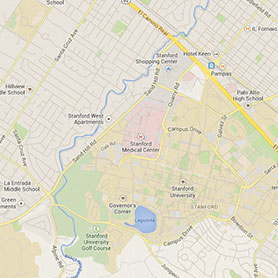Ileal J-pouch Surgery Overview
If diet and medications fail to relieve your symptoms or your inflammatory bowel disease has progressed to the point you are at risk for cancer, surgery may be your best option. As part of our commitment to offering the best available treatments, colorectal surgeons at Stanford Health Care are among the first in the country to offer single incision laparoscopic procedures for ulcerative colitis.
With a large team of colorectal surgery experts, Stanford Health Care delivers ileal J-pouch surgery with a level of precision that's only available in the nation's top programs. As the "gold standard" treatment for advanced ulcerative colitis, ileal J-pouch surgery is a highly specialized procedure in which we create a new way for you to store and eliminate waste (stool) after having a colon resection or small bowel resection.
Ileal J-pouch surgery is curative. This means that after your procedure, you will no longer suffer from ulcerative colitis. In fact, one of the greatest benefits of ileal J-pouch surgery is regaining control over your bowel movements and being free from the urgent need to find a bathroom. According to our surgeons, 95 percent of patients say they are glad they had the operation.
You can resume a normal life once you recover from ileal J-pouch surgery. This may include:
- Fewer bowel movements: You can expect to have significantly fewer bowel movements, although you may still have more than the average person.
- Bowel movements without symptoms: You will no longer experience an urgent need to go, cramping or bleeding.
- Medication taper: You can expect to take smaller doses of anti-diarrheal medications, oral steroids and antibiotics after your procedure. You should eventually be able to stop taking many of your medications.
- Resuming a normal diet: Once you have recovered, you may be able to eat normal sized meals and enjoy foods you avoided in the past. Dieticians from GI Nutrition Services who specialize in treating patients with gastrointestinal disorders will help you slowly transition back to a normal diet.

